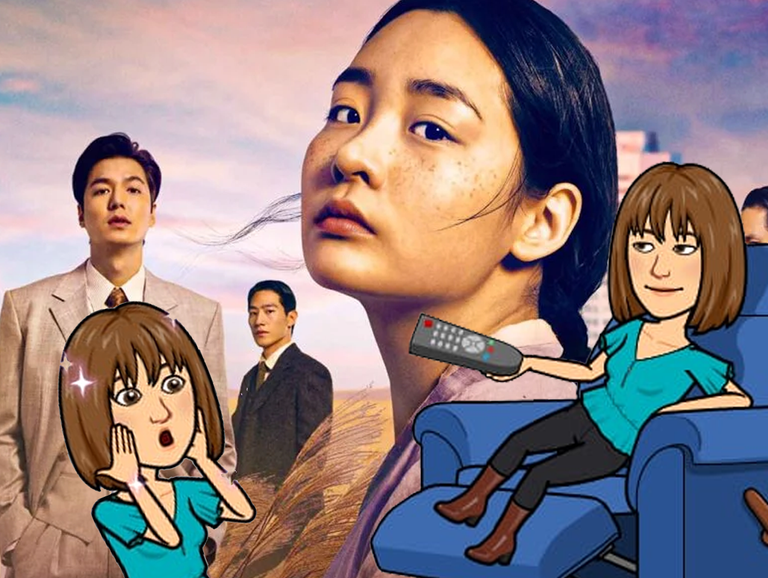
Hola queridos cinéfilos, el fin de semana pasado mi hija Raquel me sugirió ver juntas Pachinko ya que la serie tenía buenas críticas y uno de sus protagosnistas es Lee Min-Ho, mi actor Coreano favorito. Sin dudarlo vimos en familia esta serie que hoy vengo a reseñar y que me gustó mucho.
Hello dear moviegoers, last weekend my daughter Raquel suggested that I watch Pachinko together since the series had good reviews and one of its protagonists is Lee Min-Ho, my favorite Korean actor. Without hesitation, we watched this series as a family that I am here to review today and that I really liked.
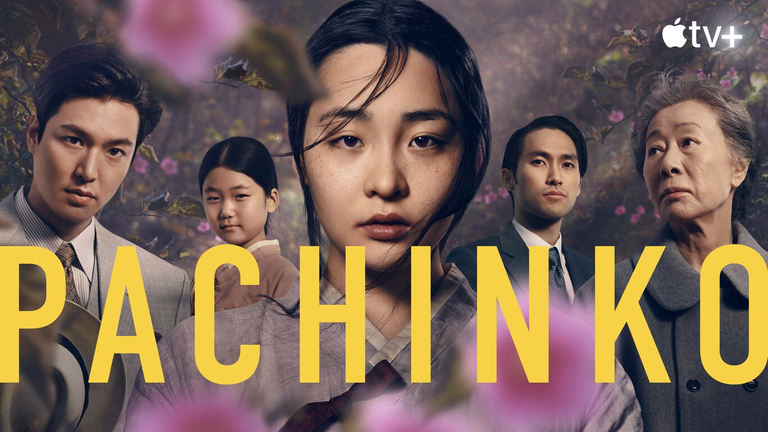
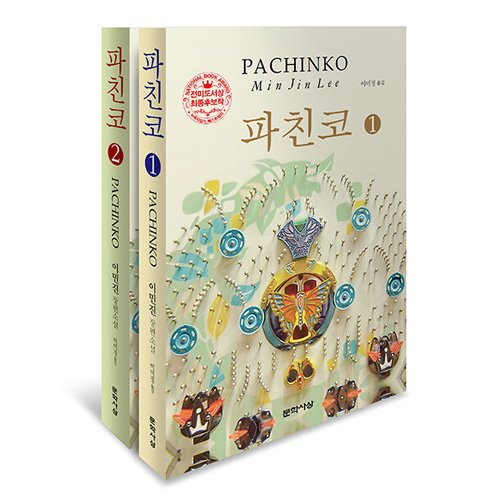
Pachinko está recién sacada del horno, se estrenó el 25 de marzo de este año y puedes ver la primera temporada por Appel Tv, tiene 8 capítulos. Lo malo es que te vas a quedar con las ganas de seguir viendo más capítulos, pero tendremos que esperar que se estrene otra temporada el próximo año, lo que me pone triste. Pachinko es una adaptación del Bestseller que lleva el mismo nombre, escrito por Min Jin Lee de 2017.
Pachinko is fresh out of the oven, it premiered on March 25 of this year and you can watch the first season on Appel TV, it has 8 episodes. The downside is that you're going to want to continue watching more episodes, but we'll have to wait for another season to premiere next year, which makes me sad. Pachinko is an adaptation of the Bestseller of the same name, written by Min Jin Lee from 2017.
¿De qué trata la Serie?
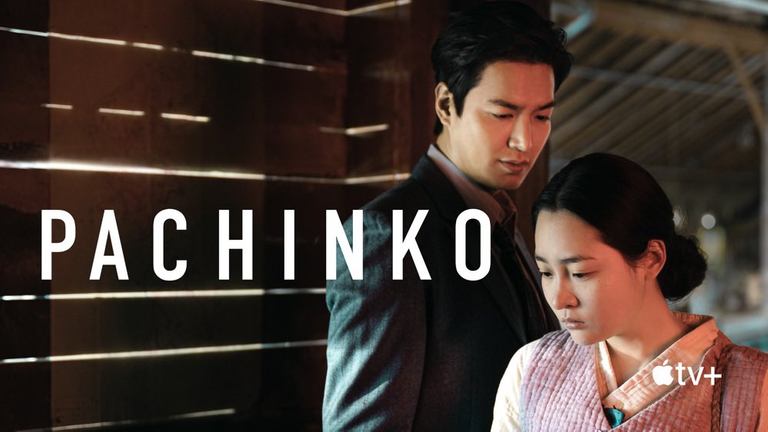
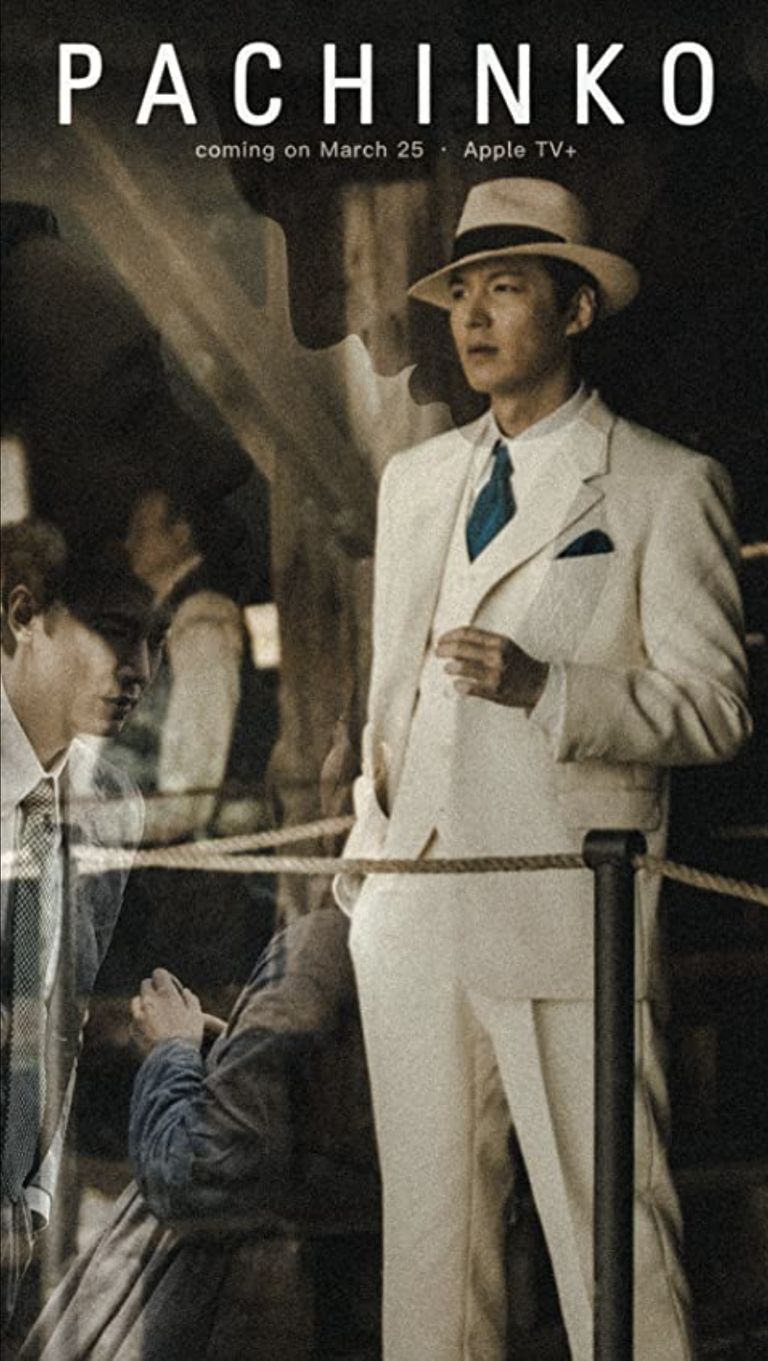
La historia trata sobre las esperanzas y los sueños de una mejor vida de varias generaciones de una familia de inmigrantes coreanos. La trama se desenvuelve entre Corea, Japón y Estados Unidos llevándonos en varias líneas de tiempo en el transcurso de la serie. Comienza en el año de 1900 en un pequeño pueblo pesquero en Busan donde Sujan, la matriarca de la familia y quién da comienzo a la historia nace en una familia muy humilde, siendo su padre un hombre estigmatizado por ser un hijo bastardo en una época donde nacer fuera del matrimonio era ser basura. La narración avanza y retrocede en el tiempo, pero debo reconocer que me interesaba más ver el pasado.
The story is about the hopes and dreams for a better life of several generations of a Korean immigrant family. The plot unfolds between Korea, Japan, and the United States, taking us through various timelines over the course of the series. It begins in the year 1900 in a small fishing village in Busan where Sujan, the matriarch of the family and who begins the story, is born in a very humble family, his father being a man stigmatized for being a bastard son in a time where to be born out of wedlock was to be trash. The narrative goes back and forth in time, but I must admit that I was more interested in seeing the past.
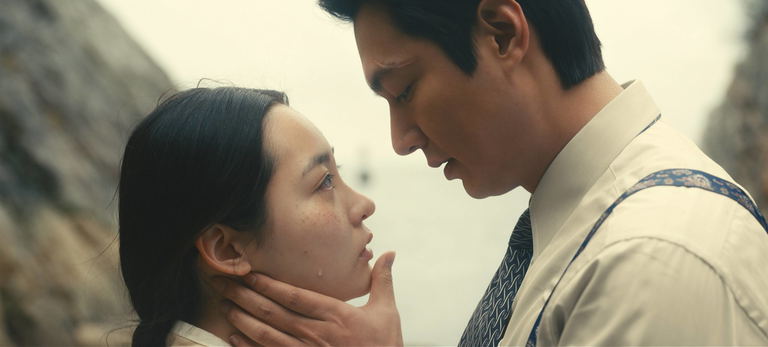
Sunja se enamora a los 16 años de un apuesto y adinerado hombre con una reputación dudosa y es aquí donde comienza una serie de eventos que la hacen abandonar su hogar y enfrentar complicadas situaciones para sacar adelante su familia. No voy a hacer spoiler, tienes que verla.
Sunja falls in love at the age of 16 with a handsome and wealthy man with a dubious reputation and it is here that a series of events begins that make her leave her home and face complicated situations to support her family. I'm not going to spoiler, you have to see it.
¿Qué me gustó de la serie?
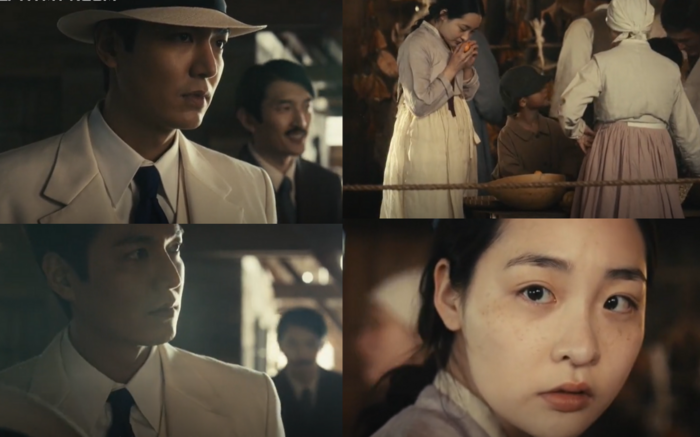
La serie cuenta con excelentes actores y no es para nada aburrida, te hace querer ver más capítulos. Muestra la situación de cómo vivieron los coreanos en un país invadido por los japoneses, donde su país ya no les pertenecía y eran objeto de malos tratos, aceptando vejámenes y trabajos casi de esclavos para poder sobrevivir.
The series has excellent actors and is not boring at all, it makes you want to see more episodes. It shows the situation of how Koreans lived in a country invaded by the Japanese, where their country no longer belonged to them and they were subjected to mistreatment, accepting humiliation and almost slave labor in order to survive.
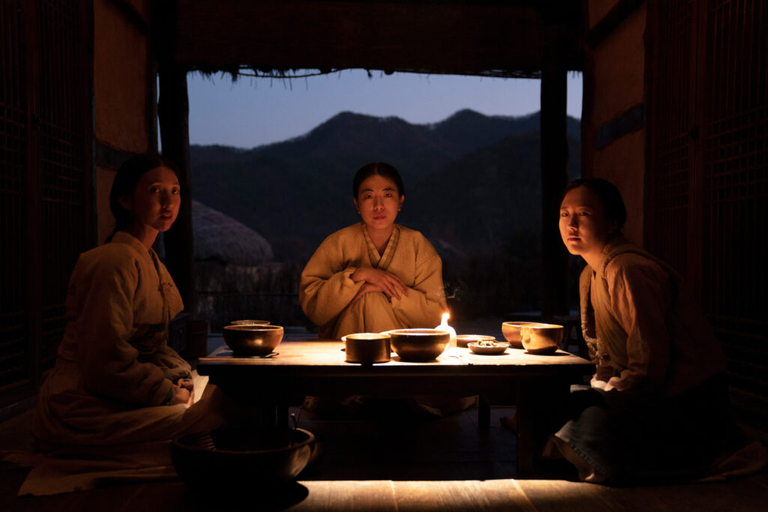
Al final de la serie te muestran relatos reales de personas que vivieron esa época, me encantó esta parte. Realmente siempre es bueno conocer algo de la historia de otro país. Te recomiendo ver Pachinko, no olvides tus cotufas y espero sea de tu agrado, coméntame si te gustó.
At the end of the series they show you real stories of people who lived through that time, I loved this part. It really is always good to know something about the history of another country. I recommend you to see Pachinko, do not forget your popcorn and I hope you like it, tell me if you liked it.
Foto principal editada con Photoshop CS5 y cartoon hecho con Bitmoji // Texto traducido por Google Translate
Main photo edited with Photoshop CS5 and cartoon made with Bitmoji// Text translated by Google Translate.
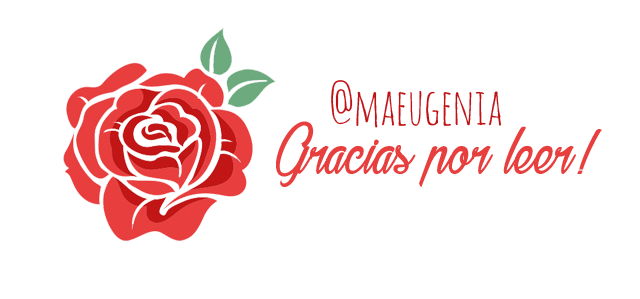
Esta es ya la segunda review positiva que leo de esta serie en Hive y me confirma que está es una serie que vale la pena ver. La he tenido en mi lista de producciones por ver desde hace tiempo pero hasta ahora la he estado dejando para después. Creo que la semana que viene o la próxima debería ponerme a verla. Tiene muy buena pinta 👍
Es muy buena y te la recomiendo, tiene buenas críticas y como mencioné no es aburrida. Saludos.
This review is surprising as the only one I've seen/heard made me wary of watching it.
Like you I also think Lee Min-Ho is a great actor, anybody that thinks otherwise belongs to the great minority in this category lol.
The storyline seems engaging enough but the thought of starting a series that isn't complete yet is a little discouraging.
I'm reconsidering watching this movie thanks to your review 😊